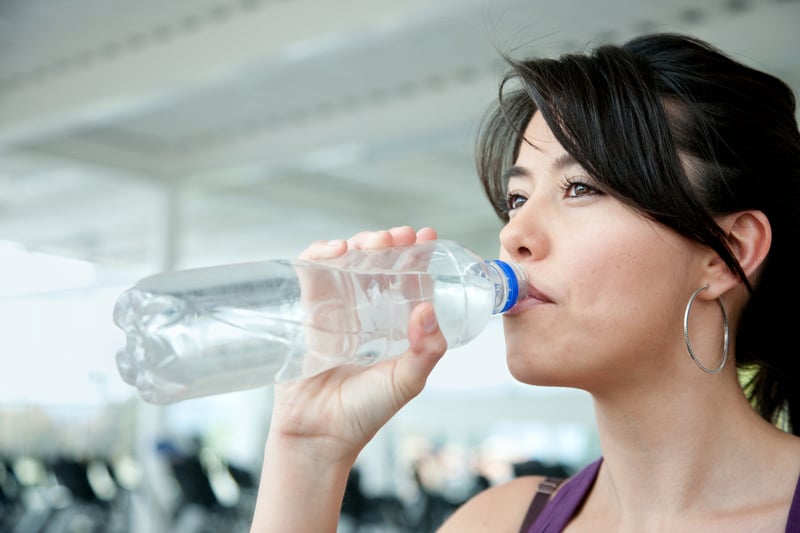
If you’re taking a GLP-1 medication like Ozempic or Wegovy, you’ve probably heard about the common side effects—nausea, fatigue, constipation. What often gets overlooked, though, is one of the simplest and most impactful tools to manage them: hydration.
Staying well-hydrated isn’t just about quenching thirst—it plays a critical role in how your body responds to GLP-1 therapy. From supporting digestion to reducing the risk of dehydration-related complications, water is part of the treatment plan. In this article, we’ll break down why hydration matters and how to make it work for you as part of your overall care strategy.
Importance of Hydration
Hydration is foundational to good health. It supports digestion, helps your body absorb nutrients, regulates body temperature, and keeps your energy steady throughout the day. But if you’re taking a GLP-1 receptor agonist—such as Ozempic, Wegovy, or Mounjaro—staying hydrated becomes even more essential.
These medications can increase your risk of dehydration due to side effects like nausea, vomiting, diarrhea, or reduced appetite. Dehydration not only worsens these symptoms but can also interfere with how well the medication works. Prioritizing hydration helps your body tolerate treatment better, supports healthy digestion, and may even help prevent common complications like constipation or fatigue.
Why Hydration Matters Even More on GLP-1s
While water plays a critical role in overall health, it becomes especially important when you're on a GLP-1 medication. Here’s how proper hydration directly supports your wellbeing during treatment:
- Eases Digestive Side Effects: Nausea, constipation, and slowed digestion are common with GLP-1s. Staying hydrated can help regulate bowel movements and reduce discomfort.
- Reduces Risk of Dehydration: Appetite suppression, vomiting, and diarrhea can quickly deplete your fluid levels. Proactively drinking fluids helps you stay ahead of dehydration.
- Supports Cellular Function and Energy: Hydration helps your body process nutrients and maintain steady energy—both of which are vital when adjusting to a new medication.
- May Help With Medication Tolerance: Being well-hydrated may help your body adapt more comfortably to the medication, improving your ability to stay consistent with treatment.
Practical Tips to Stay Hydrated While on GLP-1s
Hydration isn’t just a healthy habit—it’s an essential part of managing side effects and supporting your overall treatment plan. Nausea, reduced appetite, and slower digestion can make it harder to stay on top of your fluid needs, but even small, consistent efforts can have a big impact.
The tips below are designed to help you stay ahead of dehydration in realistic, approachable ways—so you can feel your best while continuing to make progress on your health goals.
- Start Early and Sip OftenBegin your day with a glass of water and aim to drink consistently throughout the day rather than chugging large amounts at once, which can worsen nausea.
- Flavor With PurposeIf plain water feels unappealing, infuse it with lemon, cucumber, mint, or berries. These not only add flavor but can also support digestion and reduce bloating.
- Track Fluid IntakeUse a water-tracking app or set phone reminders to help you hit your daily hydration goal—especially helpful when appetite is low and thirst cues are diminished.
- Hydrate Beyond WaterLow-sodium broths, non-caffeinated herbal teas, electrolyte waters, and even water-rich foods (like cucumbers, melon, and soups) all count toward your fluid needs.
- Use Urine as a GuidePale yellow urine typically signals adequate hydration. If it’s dark or has a strong odor, you likely need more fluids—especially if you're also experiencing fatigue or dizziness.
Hydrating Foods That Support Your GLP-1 Journey
When drinking enough water feels challenging—especially if you're experiencing nausea or reduced appetite—eating water-rich foods is a smart and gentle way to boost hydration. Incorporating these foods not only supports your fluid intake but also offers important nutrients that help your body feel its best during GLP-1 therapy. And with decreased appetite, what you eat matters more than ever.
- Cucumbers (96% water)Light, crisp, and easy to digest—great in salads, smoothies, or on their own with a pinch of salt.
- Lettuce (95% water)Add to sandwiches, wraps, or use as a base for hydrating, nutrient-rich salads.
- Watermelon (92% water)A sweet source of hydration and electrolytes—ideal for snack time or blended into a refreshing summer drink.
- Strawberries (91% water)Packed with antioxidants and fiber, these berries make a great addition to yogurt, oats, or just eaten fresh.
The Bottom Line
Hydration isn’t just a wellness buzzword—it’s a powerful tool in making GLP-1 therapy more effective and manageable. From easing side effects to supporting your digestion, energy, and overall medication tolerance, staying on top of your fluid intake can make a real difference in how you feel day to day.
If you’re unsure how much you should be drinking, what fluids are best, or how to stay hydrated when your appetite is low, you're not alone. Our team at OnPoint Nutrition is here to help you navigate every part of your journey—hydration included—with expert, individualized guidance that fits your lifestyle and medical needs.
Let’s make sure your care plan is complete, from food to fluids. Reach out today to connect with a registered dietitian who can support your success on GLP-1 therapy and beyond.

With a knack for turning complex nutrition facts into engaging, relatable content, she’s on a mission to make healthy living fun and accessible. Backed by a stellar team of Dietitians and Nutritionists, Abby breathes life into OnPoint’s mission, inspiring others to embrace the transformative power of good nutrition. Her infectious enthusiasm and innovative approach make her a driving force in the journey towards better health for all.



